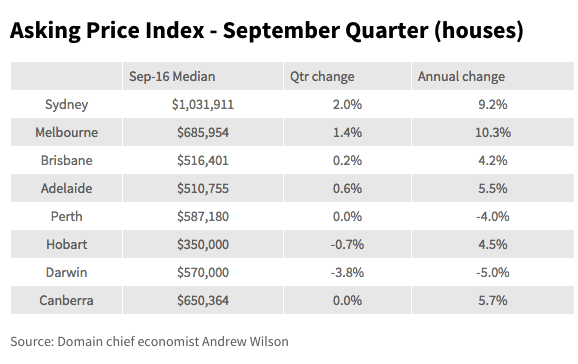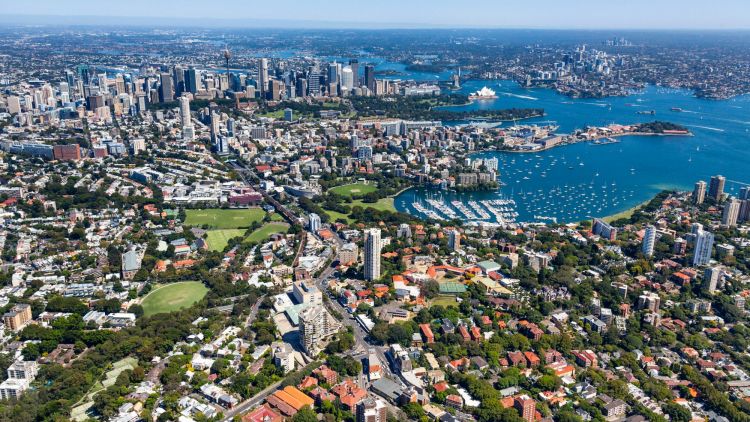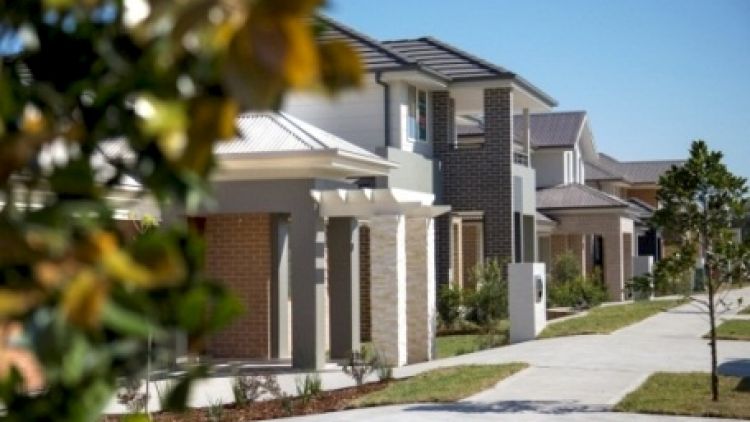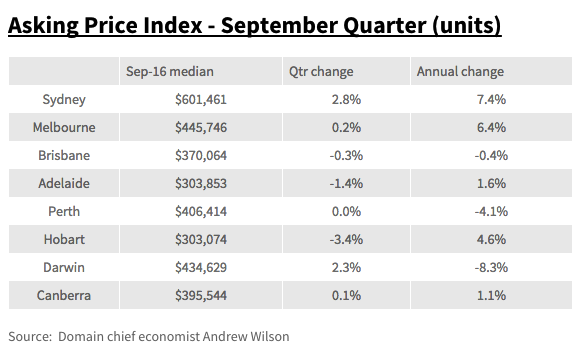This article was first published by Kirsten Robb on 4th Oct 2016 via domain.com.au | Image: Aussie property owners want more and more to part with the keys. Photo: Glenn Hunt
Sellers across Australia are displaying confidence in rising property markets by asking buyers to dig deep for more money.
Owners listing their properties on the private treaty market — the great majority of Australian vendors — have upped their price demands over the the past 12 months in every capital city bar Perth and Darwin, Domain Group’s Asking Price Index released on Monday shows.
Unsurprisingly, house sellers in Melbourne and Sydney are the most bullish in the property game, asking buyers to pay a 10.3 per cent and 9.2 per cent more respectively than they did a year ago.
Interestingly, given the ongoing debate about oversupply, both cities also witnessed an increase in unit asking prices: Sydney up 7.4 per cent, Melbourne up 6.4 per cent.
Sydney house sellers upped their asking price 2 per cent to a median of $1,031,911 in the September quarter alone, proving sentiment is still sky high in Australia’s most expensive housing market.
“There’s clear signs of prices growth accelerating again in Sydney,” Domain Group chief economist Andrew Wilson said. “After a weak spring market last year, we’ve seen a strengthening spring this year. Interest rates are low and investors are back.”
Buyers in Sydney’s south felt the pinch the hardest, with asking prices rising 15 per cent annually, while those in the city and east watched price demands skyrocket 13.9 per cent just this quarter.
Private sale transactions accounted for about three quarters of the market in Sydney, Dr Wilson said, and tracking their asking prices showed a real-time indication of sentiment and future price growth.
AMP Capital Investors’ chief economist Shane Oliver said asking prices reflected people’s perceptions of recent price gains. “So if Sydney prices are up 10 per cent in the year, then asking prices are around the same,” he said.
The significant drop in listings in Sydney and Melbourne this year likely contributed to the sureness of sellers, Dr Oliver said.
“It seems as if those sellers who have waited could be hanging out for higher and higher prices,” he said. “They say, ‘prices have risen for 10 years plus, why rush if I can get a higher price next year?’”
House sellers in Melbourne’s inner urban market, which spans from West Melbourne to Kooyong and up to Fitzroy North, have increased their expectations by a whopping 34.1 per cent in one year, which Barry Plant director Mike McCarthy puts down to a massive drop in listings.
“Last year saw a massive spike in volumes and prices, but as this year has unfolded, there’s much less stock on the market,” Mr McCarthy said. “When stock gets tighter, agents are madly chasing listings. They try to ‘buy’ the listing by suggesting they can get a higher price.”
Edwin Almeida from Sydney’s Just Think Real Estate agreed. “What happen is a lot of agents out here, biding for small amount of properties on the market and the biggest biggest selling point is, ‘if you come with us, we’ll get you a bigger price,” Mr Almeida said. “That psychology itself pushes prices up.”
Brisbane house sellers have raised expectations by 4.2 per cent annually, but unit sellers have reigned in their hopes with a drop of 0.4 per cent on asking prices.
Darwin and Perth were the only two capital city markets to drop the price of houses (5 per cent and 4 per cent respectively), proving sellers were still feeling effects of the downturn of the resource sectors.



